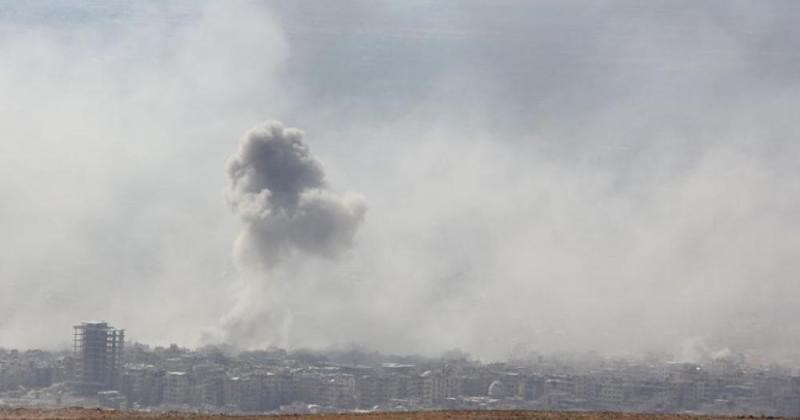From Douma the news of a night raid with gas that killed 70 people and intoxicated hundreds more. The Pope, “Political and military leaders should choose negotiation, the only way that can lead to a peace that does not go through death and destruction”.
"There is no good war or bad war. There is nothing, nothing that can justify the use of instrument of extermination against defenceless people". On a sunny morning in St. Peter's Square, crowded with 50 thousand faithful and pilgrims, at the end of the Mass of Divine Mercy, the words of Pope Francis resound strongly. For the second time after the "Urbi et Orbi" blessing on Easter Sunday, Pope Francis uses the word "extermination" to define the massacre taking place in Syria.
In these hours, "terrible news arrives from the tormented Middle East of bombings which have claimed dozens of victims, many of whom are women and children. News of chemical substances contained in bombs", says Bergoglio who, after the Regina Caeli prayer, reads a sheet passed into his hand by the ceremonial Guido Marini. The reference is to the massacre in Douma, the last suburb of eastern Ghouta that has become the stronghold of Syrian rebels who refuse to surrender: 70 people were killed and hundreds more were poisoned in what is thought to be an chemical weapons attack, probably with chlorine gas a during a raid that took place this night. Jaysh al-Islam's fighters point their finger at "the regime and its allies" who continue to perpetrate "their crimes". The victims are mainly civilians, many children, who had taken refuge in cellars and underground to escape the bombs.
Pope Francis invites us to pray "for all the deceased, for the wounded, for the families who suffer" but above all for "political and military leaders" so that "they choose the other way, that of negotiation, the only way that can lead to a peace that does not through death and destruction".
It is not the first and, probably, it will not be the last appeal that the Pope makes for the Syrian land, plagued by a conflict that has gone in the last seven years from civil to "global", as the nuncio to Damascus Mario Zenari recently said. During the already mentioned "Urbi et Orbi" Easter message of 1 April last, the Pontiff had asked to stop "immediately" the "extermination taking place in Syria", “whose people are worn down by an apparently endless war". On that occasion Francis prayed that "This Easter, may the light of the risen Christ illumine the consciences of all political and military leaders, so that humanitarian law may be respected and that provisions be made to facilitate access to the aid so urgently needed by our brothers and sisters, while also ensuring fitting conditions for the return of the displaced.
